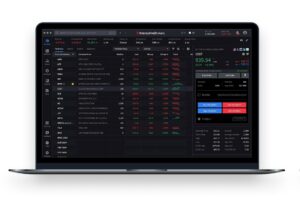A new collaboration between the Crypto Carbon Ratings Institute (CCRI) and Broadridge Financial Solutions, Inc. (NYSE:BR) aims to deliver an integrated communications, data, and disclosure generation platform to help companies operating in Europe, including exchanges, brokers and asset managers to meet new sustainability reporting requirements.
This integration combines CCRI’s sustainability data with Broadridge’s ClearFI digital asset information and disclosure platform, enabling financial services firms to demonstrate compliance with the European Union’s (EU) Markets in Crypto-Assets (MiCA) regulations.
“As global regulators define new rules and standards to mature the Digital asset and Crypto Industry the ClearFi solution continues to expand to assist clients’ compliance needs,” said Rob Krugman, Chief Digital Officer at Broadridge. “Working with CCRI, we are helping the financial services industry meet critical regulatory requirement and drive more informed investment decisions for all market participants.”
The EU’s MiCA framework represents a groundbreaking regulatory approach, designed to stabilize financial markets, protect investors, and usher in a new era of transparency in the crypto sector. MiCA requires Crypto-Asset Service Providers (CASPs), including exchanges, brokers and custody providers operating in the EU to present their customers with sustainability metrics in addition to generating and filing whitepapers with Member States for each of the assets enabled on their platforms. The combined dataset enabled through this partnership will enable Broadridge to assist CASPs in satisfying these regulations immediately.
The new MiCA rules begin to go into effect on December 30, 2024.
“This collaboration is a significant milestone, providing companies with the data and tools to comply with regulatory frameworks including the requirements for sustainability disclosures,” said Christian Stoll, Chief Executive Officer at CCRI.
This partnership will also extend to asset managers and corporations that will need to comply with upcoming changes to accounting rules that require the consideration of GHG emissions related to digital assets that asset managers or corporations hold or trade.









